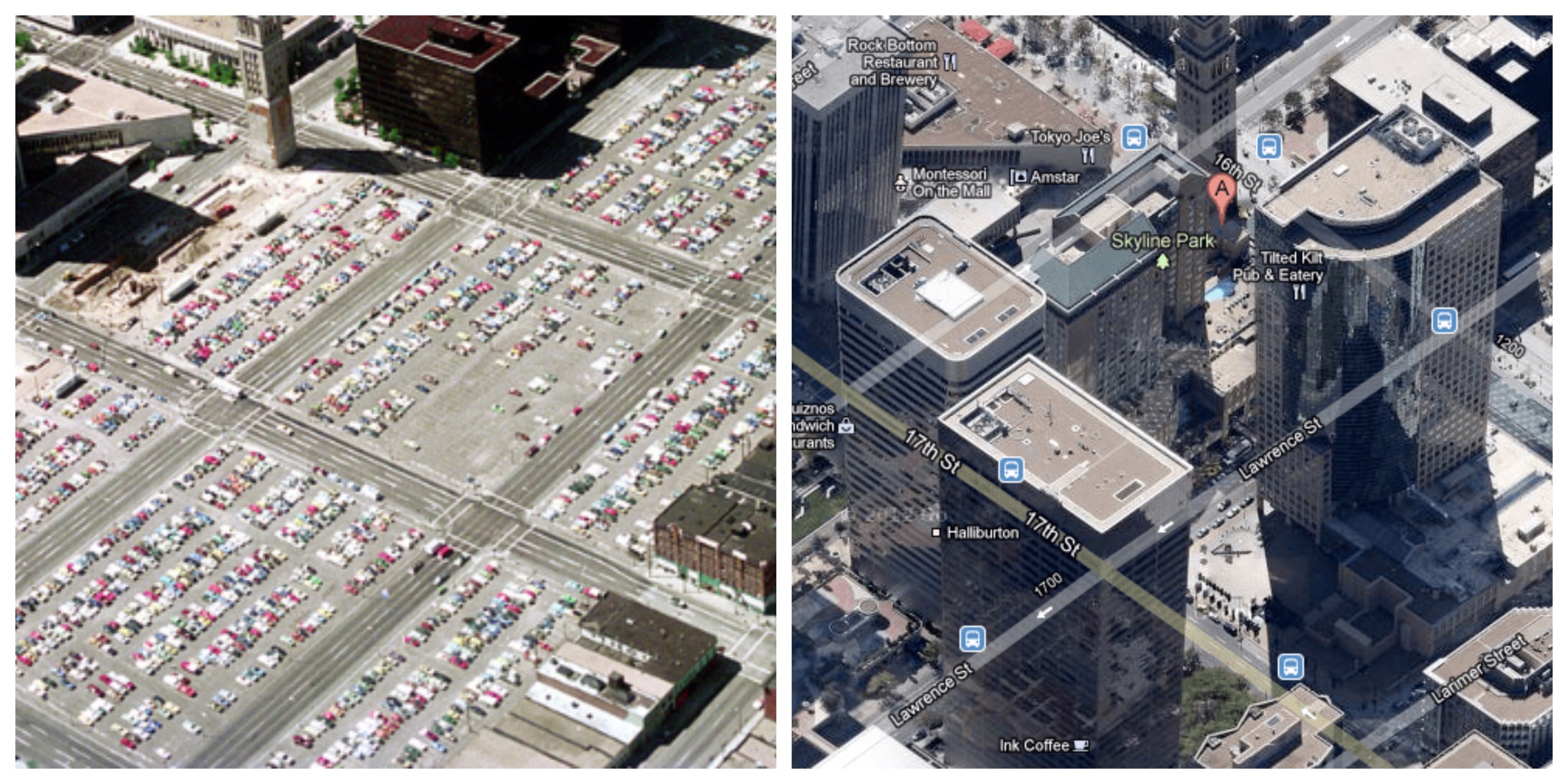It's March, so that means it's time for our annual March Madness-style tournament comparing some of the most disappointing missed opportunities in urban environments: surface parking lots, or, as we like to call them: parking craters.
This year, the sixth year of the tournament, we want to mix things up a little, put a happy spin on things. This year's competition will feature former parking craters that are now awesome city spaces.
We're looking for entries for Most Improved Parking Crater! The above aerial showing downtown Denver in the 1970s vs. today is a great example of the kind of improvements cities can make with the right mix of attention, policy and investment.
Send your entries, including photos and a short description to Angie Schmitt at Streetsblog by merely clicking that link by Monday March 18. Or leave the information in the comments. (But we'll still need a picture, so email is best.)






